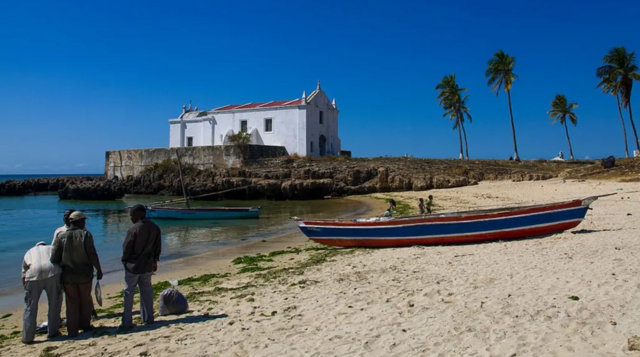Mozambique Mourns Loss of Eight Family Members in Boat tragedy.
The recurrence of a boating accident in Mozambique so soon after the country’s worst sea disaster is truly tragic. This latest incident, claiming the lives of eight individuals, including children, highlights the dangers faced by those relying on waterways for transportation, particularly in remote areas.
When their vessel sank, a family of 12 traveling by canoe in the central district of Caia was on their way to a nearby island for family farming activities. The loss of life, especially the deaths of young children, is devastating and profoundly saddening.
Efforts to rescue those aboard the canoe were initially hampered by bad weather but have since resumed. The authorities are working diligently to locate the missing individuals and provide support to the survivors and the families of the victims.
This incident serves as a stark reminder of the urgent need for improved safety measures and regulation of water transportation in Mozambique. Adequate infrastructure, including properly maintained vessels and life-saving equipment, as well as measures to ensure the competency and training of boat operators, are essential to preventing such tragedies in the future.
The Mozambican government’s launch of an inquiry into last week’s ferry disaster demonstrates a commitment to investigating the causes of maritime accidents and implementing measures to enhance safety standards. Lessons must be learned from these incidents to prevent similar loss of life and ensure the safety and well-being of all who rely on water transport in Mozambique.
- Enhanced Regulation and Oversight: Strengthening regulatory frameworks and increasing oversight of water transportation operations are essential to ensure compliance with safety standards. This includes regular inspections of vessels, licensing requirements for boat operators, and enforcement of safety regulations.
- Investment in Infrastructure: Improving the infrastructure supporting water transportation, such as building and maintaining safe harbors, docks, and navigational aids, can enhance the safety and efficiency of maritime operations. Additionally, investments in communication and emergency response systems can facilitate timely assistance in case of accidents or emergencies.
- Public Awareness and Education: Raising awareness among communities about the risks associated with water transportation and promoting safe practices can help mitigate accidents. Educational campaigns can provide information on basic safety measures, such as wearing life jackets, avoiding overcrowding boats, and respecting weather conditions.
- Emergency Preparedness and Response: Building capacity for emergency response and rescue operations is crucial for minimizing the impact of maritime accidents. This includes training for first responders, establishing protocols for coordinating rescue efforts, and ensuring access to medical care for survivors.
- Collaboration and Partnerships: Collaboration between government agencies, non-governmental organizations, maritime industry stakeholders, and local communities is essential for addressing maritime safety challenges effectively. By working together, stakeholders can share resources, expertise, and best practices to improve safety outcomes.
- Long-Term Planning and Sustainable Development: Addressing underlying issues such as poverty, lack of alternative transportation options, and environmental degradation can contribute to long-term improvements in maritime safety. Sustainable development initiatives that promote economic opportunities while preserving natural resources can create safer and more resilient coastal communities.


















